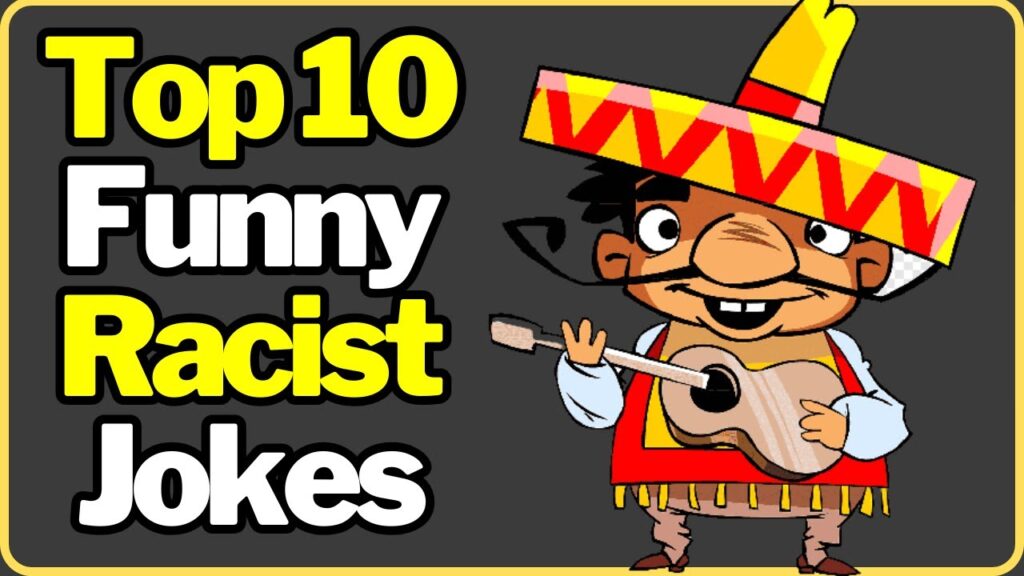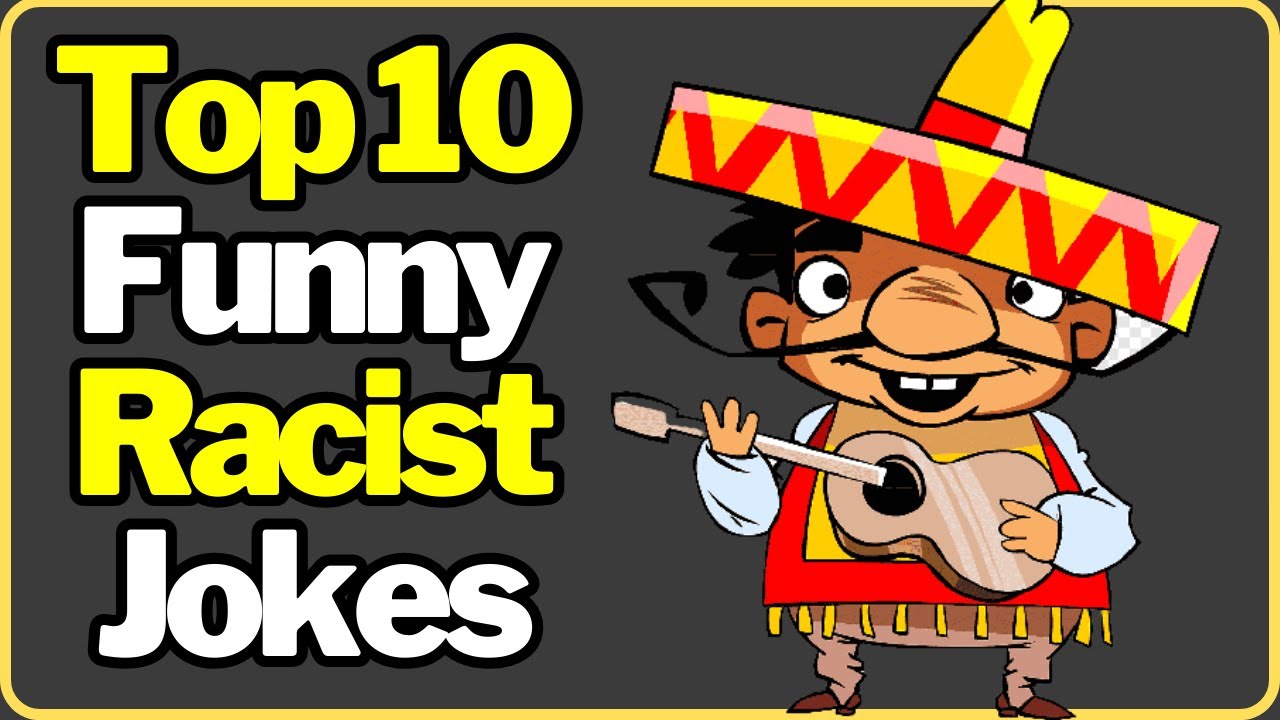
Racist Jokes List: Understanding the Harm & Ethical Considerations
The internet is awash with content, some harmless, some helpful, and some deeply problematic. Among the latter, lists of “racist jokes” represent a particularly troubling phenomenon. While humor can be a powerful tool for social commentary and connection, the propagation of jokes that rely on racist stereotypes and prejudice is never acceptable. This article delves into the complexities surrounding the concept of a “racist jokes list,” exploring the reasons why such lists exist, the harm they inflict, and the ethical considerations that should guide our interactions with humor. We aim to provide a comprehensive understanding of this sensitive topic, moving beyond superficial definitions to address the underlying issues of power, privilege, and prejudice. This is not a guide to finding or creating such lists, but rather an exploration of their impact and a call for responsible engagement with humor.
What Constitutes a “Racist Jokes List” and Why Are They Harmful?
A “racist jokes list” is essentially a compilation of jokes that rely on racist stereotypes, prejudice, or discriminatory tropes targeting specific racial or ethnic groups. These jokes often perpetuate harmful narratives, reinforce negative biases, and contribute to a climate of intolerance. They range from subtle microaggressions disguised as humor to overt expressions of bigotry. The harm inflicted by these jokes is multifaceted:
* **Perpetuation of Stereotypes:** Racist jokes reinforce harmful stereotypes, which can lead to discrimination in various aspects of life, including employment, housing, and education.
* **Dehumanization:** By reducing individuals to caricatures based on their race or ethnicity, racist jokes contribute to dehumanization, making it easier to justify prejudice and violence.
* **Emotional Distress:** Being the target of racist jokes can cause significant emotional distress, including feelings of anger, shame, and isolation.
* **Normalization of Racism:** The widespread dissemination of racist jokes normalizes racist attitudes and behaviors, making it more difficult to challenge and dismantle systemic racism.
* **Erosion of Social Cohesion:** Racist jokes undermine social cohesion by creating divisions and fostering mistrust between different racial and ethnic groups.
The Psychology Behind Racist Humor
Understanding the psychology behind racist humor is crucial to addressing its harmful effects. Some argue that such jokes are simply harmless expressions of humor, while others point to deeper psychological motivations. For example, some theories suggest that individuals use racist humor to reinforce their own sense of superiority or to cope with anxieties about racial difference. Regardless of the underlying motivation, the impact of racist humor is undeniable: it perpetuates harmful stereotypes and contributes to a climate of intolerance.
The Role of Power and Privilege
Racist jokes are often rooted in power imbalances. Those in positions of power may use humor to reinforce their dominance and to marginalize those who are already disadvantaged. It’s important to recognize that humor is not always neutral; it can be a tool for oppression. Examining the power dynamics at play is essential to understanding the impact of racist jokes.
Ethical Considerations When Engaging with Humor
Given the potential harm of racist jokes, it’s essential to approach humor with a critical and ethical mindset. Here are some key considerations:
* **Consider the Impact:** Before sharing a joke, consider its potential impact on others, particularly those who belong to marginalized groups. Ask yourself whether the joke reinforces harmful stereotypes or contributes to a climate of intolerance.
* **Challenge Racist Humor:** When you encounter racist jokes, don’t be afraid to challenge them. Speak up and explain why the joke is offensive or harmful. This can be difficult, but it’s an important step in creating a more inclusive and equitable society.
* **Promote Inclusive Humor:** Seek out and share humor that is inclusive and respectful of all people. Support comedians and creators who use humor to challenge prejudice and promote understanding.
* **Educate Yourself:** Learn about the history of racism and the impact of racist stereotypes. This will help you to better understand the harm inflicted by racist jokes and to challenge them more effectively.
The Importance of Intent vs. Impact
While intent may play a role in understanding the motivations behind racist humor, it’s crucial to focus on the impact of the joke. Even if a joke is not intended to be harmful, it can still cause significant pain and distress to those who are targeted. Therefore, it’s important to prioritize the impact of humor over the intent behind it.
The Line Between Humor and Hate Speech
Drawing a line between humor and hate speech can be challenging, but it’s essential to protect vulnerable groups from harm. Jokes that incite violence, promote hatred, or dehumanize individuals based on their race or ethnicity should not be tolerated. Such jokes cross the line into hate speech and should be condemned unequivocally.
The Internet’s Role in Amplifying Racist Jokes
The internet has significantly amplified the reach of racist jokes. Social media platforms, online forums, and email chains can quickly disseminate harmful content to a wide audience. This makes it even more important to be vigilant about challenging racist humor online.
The Spread of Memes and Viral Content
Memes and viral content often rely on humor to spread their message. Unfortunately, some of these memes and viral videos contain racist jokes or stereotypes. It’s important to be aware of the potential for harm and to avoid sharing content that perpetuates prejudice.
The Anonymity of the Internet
The anonymity of the internet can embolden individuals to share racist jokes that they would not otherwise share in person. This can create a toxic online environment where hate speech and discrimination are rampant. It’s important to hold individuals accountable for their online behavior and to create a culture of respect and inclusivity.
Alternatives to Racist Humor: Promoting Positive and Inclusive Humor
Instead of relying on racist jokes, we should strive to promote positive and inclusive humor that celebrates diversity and promotes understanding. This type of humor can be a powerful tool for building bridges between different communities and for challenging prejudice.
Satire and Social Commentary
Satire and social commentary can be used to challenge racism and other forms of prejudice. By using humor to expose the absurdity of discriminatory attitudes and behaviors, we can create awareness and promote positive change.
Self-Deprecating Humor
Self-deprecating humor can be a way to connect with others and to demonstrate humility. However, it’s important to be mindful of the potential for self-deprecating humor to reinforce negative stereotypes. Avoid jokes that perpetuate harmful narratives about your own race or ethnicity.
Observational Humor
Observational humor can be used to highlight the quirks and eccentricities of everyday life. This type of humor can be a way to connect with others and to find common ground. However, it’s important to avoid jokes that rely on stereotypes or that target individuals based on their race or ethnicity.
Q&A: Addressing Common Misconceptions About Racist Jokes
Here are some frequently asked questions about racist jokes, along with expert answers:
1. **Isn’t it just a joke? Why are you so sensitive?**
* While jokes can be harmless, racist jokes perpetuate harmful stereotypes and contribute to a climate of intolerance. Sensitivity is not the issue; the issue is the impact of the joke on individuals and society.
2. **I didn’t mean to offend anyone. Is it still wrong to tell a racist joke?**
* Even if you didn’t intend to offend anyone, it’s still important to consider the impact of your words. If a joke perpetuates harmful stereotypes or contributes to a climate of intolerance, it’s wrong to tell it, regardless of your intent.
3. **Where do we draw the line between jokes and hate speech?**
* The line between jokes and hate speech is often blurry, but it’s generally agreed that jokes that incite violence, promote hatred, or dehumanize individuals based on their race or ethnicity cross the line into hate speech.
4. **Can humor be used to combat racism?**
* Yes, humor can be a powerful tool for combating racism. Satire, social commentary, and other forms of humor can be used to expose the absurdity of discriminatory attitudes and behaviors and to promote positive change.
5. **What should I do if I hear someone tell a racist joke?**
* If you hear someone tell a racist joke, don’t be afraid to challenge them. Explain why the joke is offensive or harmful. This can be difficult, but it’s an important step in creating a more inclusive and equitable society.
6. **Are all jokes about race racist?**
* No, not all jokes about race are inherently racist. Jokes that are self-deprecating, observational, or that challenge prejudice can be harmless or even beneficial. However, it’s important to be mindful of the potential for jokes to reinforce harmful stereotypes.
7. **Is it possible to make jokes about race without being offensive?**
* Yes, it is possible to make jokes about race without being offensive. The key is to avoid jokes that perpetuate harmful stereotypes or that target individuals based on their race or ethnicity. Instead, focus on jokes that are inclusive, respectful, and that promote understanding.
8. **What is the difference between making fun of stereotypes and making fun *of* people?**
* This is a crucial distinction. Making fun of stereotypes can be a form of satire, exposing the absurdity of prejudiced beliefs. Making fun *of* people, however, directly targets individuals or groups based on their race or ethnicity, perpetuating harm and discrimination.
9. **How can I be more mindful of the potential for my humor to be offensive?**
* Cultivate empathy and consider the perspectives of others, especially those from marginalized groups. Before sharing a joke, ask yourself how it might be received by someone who is the target of racist stereotypes. If you’re unsure, it’s best to err on the side of caution.
10. **What resources are available to learn more about the impact of racist jokes?**
* Numerous organizations and resources are dedicated to combating racism and promoting inclusivity. Consider exploring websites and materials from the Southern Poverty Law Center, the Anti-Defamation League, and academic research on the psychology of prejudice.
Conclusion: Moving Towards a More Inclusive and Respectful World
Lists of racist jokes represent a troubling phenomenon that perpetuates harmful stereotypes and contributes to a climate of intolerance. By understanding the harm inflicted by these jokes, engaging in ethical considerations when interacting with humor, and promoting positive and inclusive alternatives, we can move towards a more respectful and equitable world. Let’s commit to challenging racist humor whenever we encounter it and to creating a culture where all people are treated with dignity and respect. Share your thoughts on this topic in the comments below and let’s continue the conversation.

